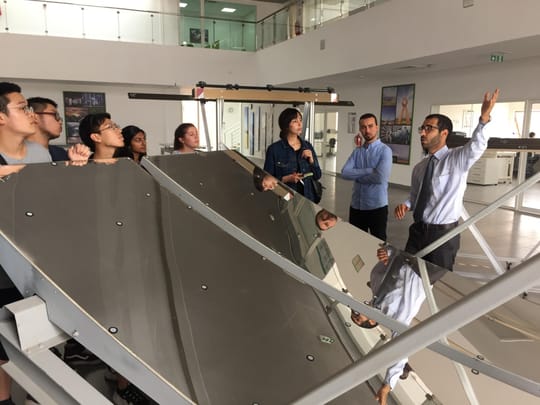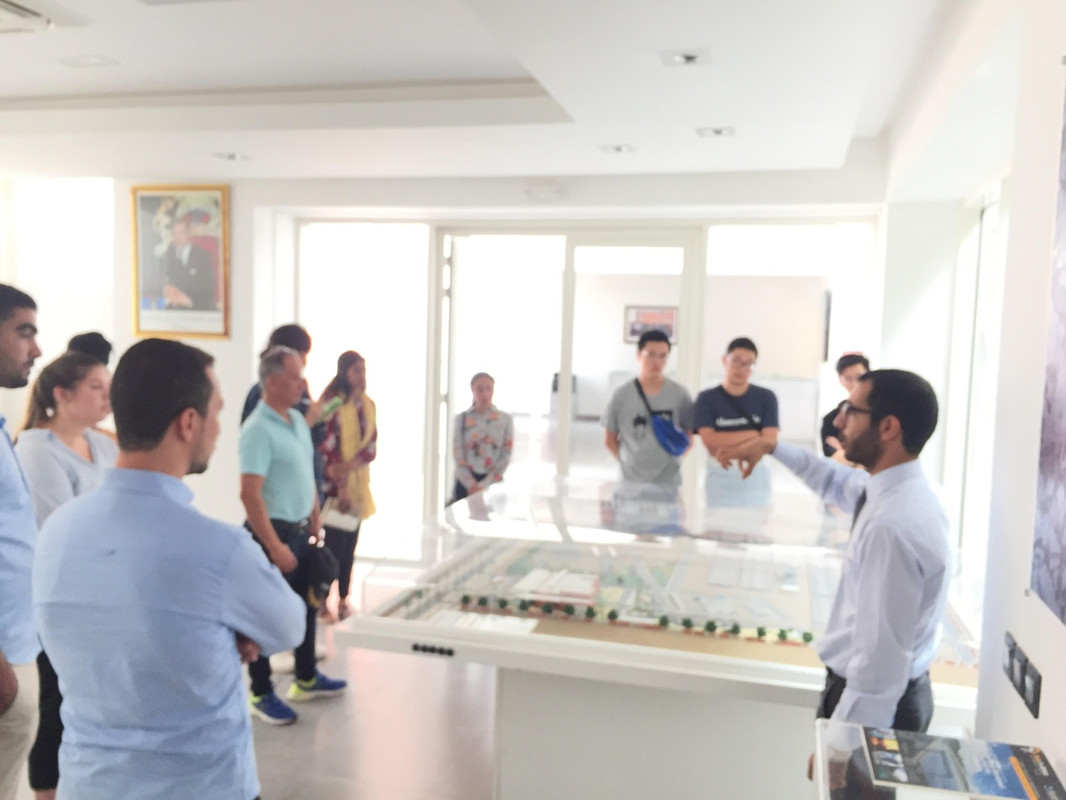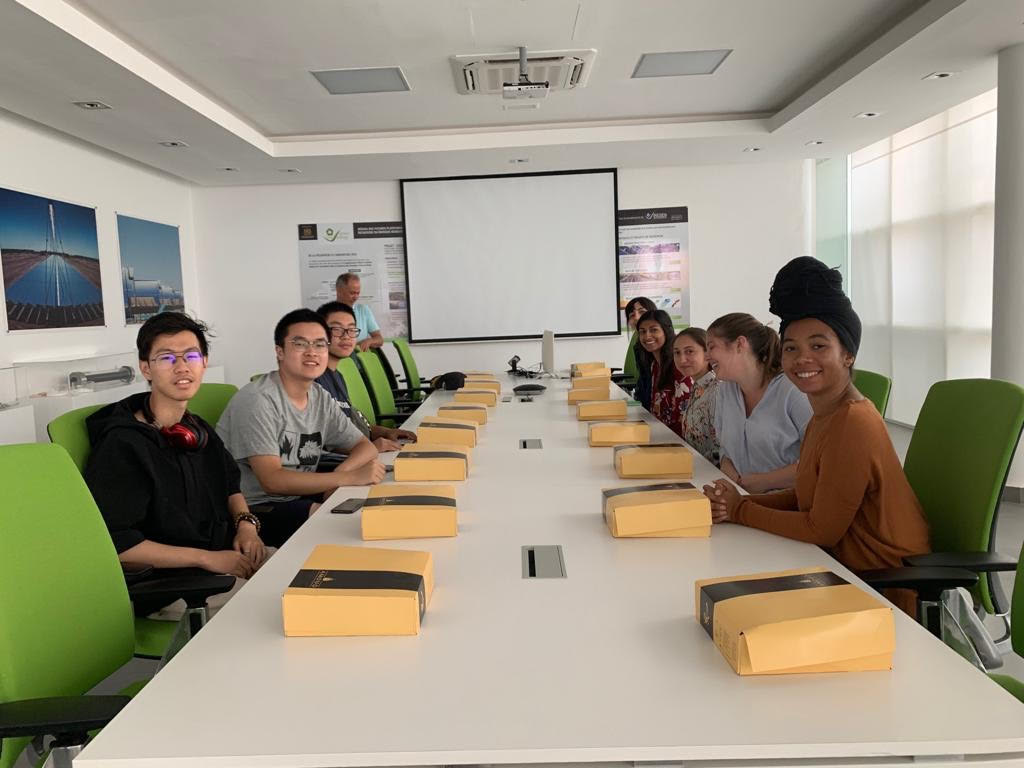Revitalizing the Global Partnership for Sustainable Development

Morocco is on its way to being the hub of solar energy in Africa.
Brooklyn Wenbo Wu
HAF Intern
Promoting the use of solar energy is an effective way which not only provides more access to affordable, reliable, sustainable and modern energy for all, but is also a feasible method to address climate change. However, immature photovoltaic technology, low conversion rate in practice and high installation and maintenance cost frequently block the technology from being widely used, especially in Africa. Surprisingly, supported by the Ministry of Energy, Mining, Water and Environment of Morocco, the Institut de Recherche en Energie Solaire et Energies Nouvelles (IRESEN), in Ben Guerir, Morocco, has made good progress in innovation and social application of the solar energy use. Through promoting global partnership and increasing multi-stakeholder engagement, IRESEN has made a solid step towards the hub of solar energy use in Africa.

Aiming at build the bridge between scientific, technological and research communities in solar energy use, IRESEN attaches great importance in the engagement of national universities and institutions. Relying on the platforms of numerous universities and institutions in Morocco, IRESEN is able to build research and test platforms nationwide, as well as collect relevant research from different institutions and academies. For instance, constructing next to the Mohammed VI Polytechnic University, the Green Energy Park is responsible for massive of IRESEN’s photovoltaic technology and solar panel development programs. Every year, the Green Energy Park receives more than 100 of interns from universities and institutions all over the world, and jointly promote cooperative research projects with universities and research teams in Morocco. Today, using the facilities of different universities, including the University of Hassan II in Casablanca, Mohammed V University in Rabat, and the Cadi Ayyad University in Marrakech, solar data of major cities and regions across the country are gathered and analyzed in the Green Energy Park, to help with the development of solar panels. The involvement of universities and academies significantly break the boundary between academic and technological communities, thus offered global talent and a broader experimental platform to the solar energy research.
In order to support its research and promote the practice of solar energy in industrial productions, IRESEN established global partnership to gather global resources and try to contribute universal solutions to global issues. Working closely with the EU, IRESEN receives both financial and political support for their projects and proposals. Despite this, IRESEN also established partnership with other governmental sectors. For instance, Korea International Cooperation Agency (KOICA) contributed a technologically advanced experiment chamber to the Green Energy Park. A joint call for energy technological cooperation was also initialed by IRESEN from Morocco and Center for Development of Industrial Technology (CDIT) from Spain in 2018. In 2013, IRESEN worked with Bureau of Architecture and Energy of Germany and initialed a project aiming at Promote the innovative use of solar energy in electrical appliances. Global partnership significantly strengthens IRESEN’s ability both in academic research and practical application. In fact, IRESEN’s solar energy project is also a hub and a typical example of North-South cooperation, where not only European, but developed countries globally engaged in the sustainable development process of Africa.

Serving as the hub of solar energy use in Africa, even for the world is the long-term vision of IRESEN. Although IRESEN has made significant achievements in solar power using in Morocco, there still much work to do to actually generate a driving effect and lead the clean energy business of Africa. To address this issue, IRESEN is now working with 15 African countries including Mali, Senegal, Sierra Leone, Nigeria, Niger, Ethiopia, Guinea, and Chad. Not only to encourage and promote both governmental and private sectors’ engagement in solar energy use, but importantly, to test the solar energy products under different climate and environment conditions, thus to improve the solar panels and help to better integrate photovoltaic technology with local industry development. This vision also co-responded to the United Nations call of ‘Sustainable Energy for All’, and could effectively address the Sustainable Development Goal 7: Ensure access to affordable, reliable, sustainable and modern energy for all. Therefore, it could be predicted that the solar energy development of IRESEN will provide a strong impetus for sustainable development in Africa, and could truly become the hub of solar energy use in Africa.

Generally speaking, engaging global and regional partnership truly put the solar energy project onto a new stage. In the deepening trend of globalization, the human race is facing numerous of global issues, among which climate change and resource exhaustion are the main problems of human destiny. Therefore, this age needs the revitalization of global partnership and the sense of shared responsibility of mankind more than any other ages do. Not to mention that by engaging global partnership and involving multi-stakeholders, projects aiming at addressing global issues could be better supported with finance, academic resources and political attention. With international and regional cooperation in multiple levels and fields, the solar energy project of IRESEN can benefit local development to a great extent. People should not be surprised when Morocco truly becomes the hub of solar energy use in Africa one day in the future.